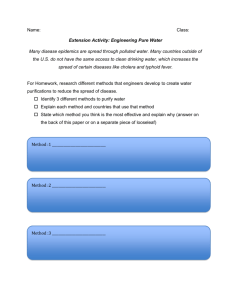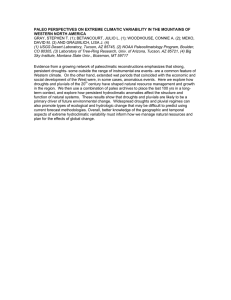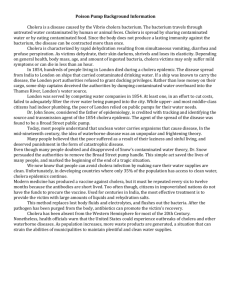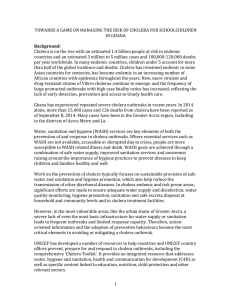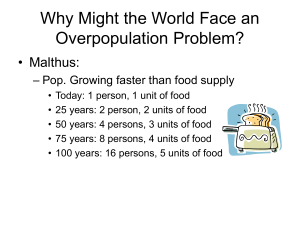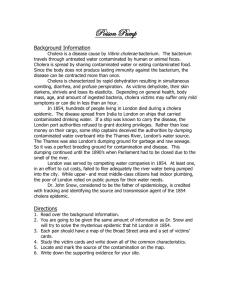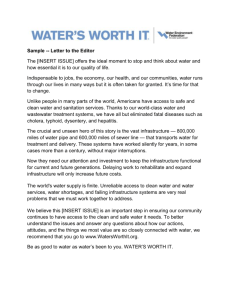Large Scale Hydroclimatic Controls in Forecasting
advertisement
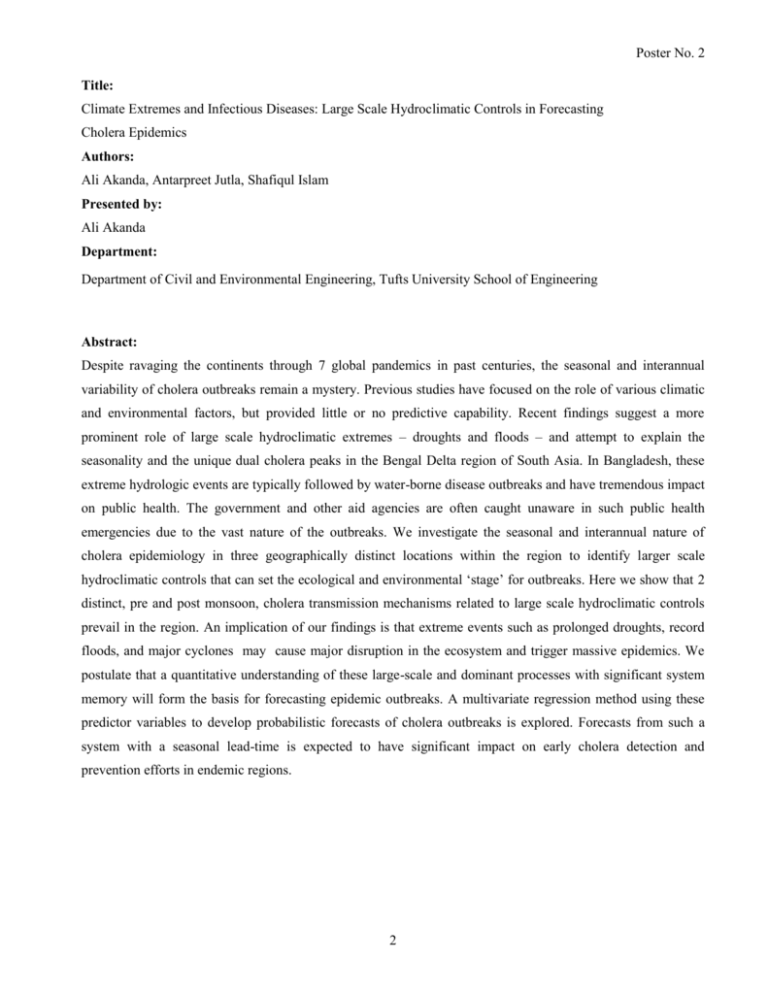
Poster No. 2 Title: Climate Extremes and Infectious Diseases: Large Scale Hydroclimatic Controls in Forecasting Cholera Epidemics Authors: Ali Akanda, Antarpreet Jutla, Shafiqul Islam Presented by: Ali Akanda Department: Department of Civil and Environmental Engineering, Tufts University School of Engineering Abstract: Despite ravaging the continents through 7 global pandemics in past centuries, the seasonal and interannual variability of cholera outbreaks remain a mystery. Previous studies have focused on the role of various climatic and environmental factors, but provided little or no predictive capability. Recent findings suggest a more prominent role of large scale hydroclimatic extremes – droughts and floods – and attempt to explain the seasonality and the unique dual cholera peaks in the Bengal Delta region of South Asia. In Bangladesh, these extreme hydrologic events are typically followed by water-borne disease outbreaks and have tremendous impact on public health. The government and other aid agencies are often caught unaware in such public health emergencies due to the vast nature of the outbreaks. We investigate the seasonal and interannual nature of cholera epidemiology in three geographically distinct locations within the region to identify larger scale hydroclimatic controls that can set the ecological and environmental ‘stage’ for outbreaks. Here we show that 2 distinct, pre and post monsoon, cholera transmission mechanisms related to large scale hydroclimatic controls prevail in the region. An implication of our findings is that extreme events such as prolonged droughts, record floods, and major cyclones may cause major disruption in the ecosystem and trigger massive epidemics. We postulate that a quantitative understanding of these large-scale and dominant processes with significant system memory will form the basis for forecasting epidemic outbreaks. A multivariate regression method using these predictor variables to develop probabilistic forecasts of cholera outbreaks is explored. Forecasts from such a system with a seasonal lead-time is expected to have significant impact on early cholera detection and prevention efforts in endemic regions. 2
